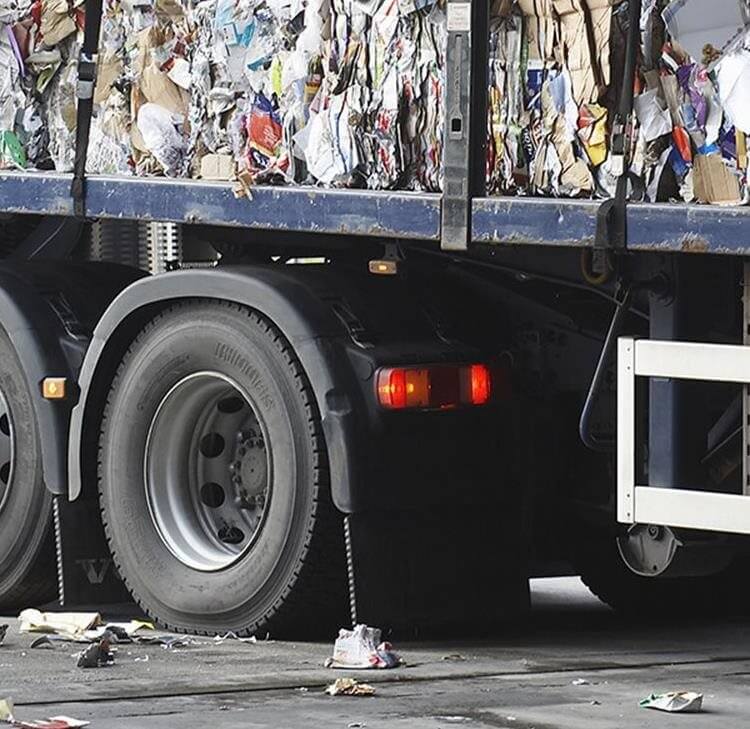The UK Deposit Management Organisation (UK DMO), established in February 2025, is the newly appointed operator of the Deposit Return Scheme (DRS) for England, Scotland, and Northern Ireland. It replaces the now-defunct Circularity Scotland, which collapsed amid controversy and legal disputes.
The UK DMO is a business-led, not-for-profit entity tasked with designing and delivering the infrastructure for the DRS, set to launch in October 2027.
Wales, however, has opted for a divergent path, currently maintaining the inclusion of glass and also considering moving towards a reuse-focused model as opposed to recycling. This potential divergence has sparked a debate over operational complexity and market fragmentation.
This article explores the formation, role, and challenges of the UK DMO, the legacy of Circularity Scotland, and the evolving landscape of DRS implementation across the UK.
The UK Deposit Management Organisation: Formation and function
The UK Deposit Management Organisation Ltd (UK DMO) was incorporated on 26 February 2025 as a private company limited by guarantee. It was established to deliver the UK’s Deposit Return Scheme (DRS), a system designed to reduce litter and boost recycling by placing a refundable deposit on single-use plastic and metal drinks containers. The scheme will cover England, Northern Ireland, and Scotland, with a launch date set for October 2027.
The UK DMO describes itself as business-led and not-for-profit, with its board composed of representatives from major drinks producers and retailers, including multinational corporations and small independent businesses. The organisation is chaired by John Bason, a seasoned executive with experience in stakeholder engagement across the food and retail sectors who was formerly Associated British Foods’ (ABF) finance director.
The UK DMO’s remit includes:
- Designing the infrastructure for container collection and processing.
- Managing financial operations, including deposit collection and reimbursement.
- Ensuring high recycling rates and environmental performance.
- Coordinating with governments and industry stakeholders.
Retailers will act as return points, though exemptions exist for small premises and those near existing return locations.
Replacing Circularity Scotland: Lessons from a failed model
The UK DMO replaces Circularity Scotland Ltd (CSL), which was originally tasked with implementing Scotland’s DRS. CSL collapsed in 2023 following widespread criticism, operational failures, and legal challenges. Key issues included:
- CSL’s plans overlapping with existing kerbside recycling systems, threatening council revenues and service viability,
- A disputed contract leading to a £100 million legal claim, and
- Legal and political disputes between Holyrood and Westminster.
The failure of CSL will serve as a cautionary tale for the UK DMO, which is now tasked with avoiding similar pitfalls by ensuring its scheme complements existing waste systems and maintains stakeholder trust.
In May 2025 Scotland officially designated the UK DMO as the administrator of its deposit return scheme (the adjusted Scottish scheme is anticipated for October 2027).
Progress toward a UK-Wide Deposit Return Scheme
The UK Government has committed to launching the DRS for England in October 2027, covering plastic and metal containers between 150ml and 3 litres. The scheme is expected to:
- Reduce the 6.5 billion containers currently wasted annually.
- Create over 4,000 jobs and stimulate £10 billion in recycling investment.
- Achieve return rates comparable to leading European nations (e.g., Germany at 98%).
The DRS is backed by major industry players and environmental groups, with widespread support for its potential to reduce litter and improve recycling outcomes.
Wales: A divergent path with glass and reuse
Wales’ decision to diverge from the UK-wide Deposit Return Scheme (DRS) framework does not simply stem from a desire to be different but is rooted in Wales’ more developed circular economy framework and aspirations.
Wales “Beyond Recycling” strategy focuses on keeping materials in use and avoiding all waste and commits to making Wales a zero waste and ‘one planet’ nation by 2050.
Wales has significant credentials in this space, the Global Recycling League Table - Phase One Report, released on World Environment Day 2024, revealed Wales as the second-best recycling nation globally, just behind Austria and the small nation is seen globally as a circular economy pioneer having increased its recycling rate from 3% in 1999 to over 66% today and led the way on things like food waste collection (this has built since 2002 so that 96% of Wales food waste is now collected, for context England is not implementing food waste collection until 2026) and kerbside sorting.
Wales is currently consulting on its DRS plans with a closing date of 10 November 2025. At present Welsh Ministers plan a phased transition for glass beginning with a base level zero deposit in order to avoid the initial need for alternative labelling whilst the other parts of the scheme are bedding in and to reduce the initial risk of fraud. They also state an intention to widen the scope of the scheme and to phase in re-use over a three year period.
Implications of Welsh divergence for industry and the UK DMO
The decision by the Welsh Government to diverge from the UK-wide Deposit Return Scheme (DRS) by including glass and prioritising reuse introduces significant implications for both industry stakeholders and the UK Deposit Management Organisation (UK DMO).
Huw Irranca-Davies, Deputy First Minister And Cabinet Secretary For Climate Change And Rural Affairs committed, in July 2025, to aligning the Welsh implementation timeline with the rest of the UK (October 2027), however, over the longer term at least, the scope and operational model of its scheme seems destined to remain distinct. It remains to be seen if Wales is able to implement its scheme in the way it desires whilst avoiding the issues that Scotland found itself mired in by including glass. There is also the question of the upcoming Senedd elections in May, the outcome of which is by no means clear at present.
It also remains unclear at the time of writing, if Wales will join the UK DMO or whether the divergence will mean it has to appoint its own DMO. In any event, for the UK DMO, the expected Welsh divergence could present significant challenges in maintaining the interoperability of the plastic and metal measures across the UK.
Differences in scope because of the inclusion of glass and reuse targets, may complicate UK wide logistics, data reporting, and consumer communications. The UK DMO will need to ensure it coordinates closely with its Welsh counterpart, if there is one, in order to minimise disruption and ensure consistent messaging.
Preparing for possible dual compliance regimes
Industry stakeholders are also given a much more complicated task in preparing for the possibility of dual compliance regimes. Whilst it is probably too early in the process (much can change after all) for it to be wise to begin investing significant capital some preparation and thought over the coming months, as proposals crystalise, would seem wise. Responding to the Welsh “Delivering a Best for Wales Deposit Return Scheme” should also be considered vital for those who use glass containers.
Likely practical considerations could include:
- Adjusting labelling and packaging to meet both UK and Welsh requirements (also bearing in mind the possibility of a Welsh language element or requirement for Welsh labels).
- Implementing separate collection and handling protocols for glass in Wales.
- Training staff and updating point-of-sale systems to accommodate different deposit values and return procedures.
- Engaging with the DMO or DMOs to understand reporting obligations and financial flows.
For businesses who will be operating across UK internal borders come October 2027 it is likely to become increasingly imperative to monitor regulatory developments and participate in consultations and other opportunities to shape, insofar as possible, the final design of the Welsh scheme. Early engagement will be critical to mitigating risks and leveraging the opportunities presented by Wales’ leadership in circular economy innovation.
The interaction between the deposit return scheme and Extended Produce Responsibility (EPR) for packaging should not be underestimated, particularly when re-use is considered as a potential way of significantly reducing the EPR fees that UK businesses and retailers will face. It may be that the cost of EPR pushes many retailers to consider adopting the re-use model that Wales is pursuing even if not mandated in England, Scotland and Northern Ireland.
Conclusion
The establishment of the UK Deposit Management Organisation (UK DMO) represents a pivotal development in the UK's journey toward a harmonised, high-performing Deposit Return Scheme. By consolidating operational oversight across England, Scotland, and Northern Ireland, the UK DMO aims to deliver a streamlined, efficient system that maximises environmental outcomes while minimising disruption to industry.
However, the success of this initiative will depend on several critical factors: learning from the operational and governance failures of predecessor models such as Circularity Scotland; fostering robust engagement with stakeholders across the supply chain; and navigating the complex terrain of devolved environmental policy.
This last factor, although relevant to Scotland as well, is currently encapsulated in Wales’ decision to pursue a distinct DRS model – one that includes glass and prioritises reuse – this decision adds both innovation and complexity to the national conversation. While this divergence reflects Wales’ leadership in circular economy policy, it also introduces regulatory fragmentation that could challenge interoperability, increase compliance burdens, and complicate logistics for producers and retailers operating across borders.
Next steps
As the October 2027 implementation deadline approaches, industry stakeholders must prepare for a landscape which will be dominated by two seeming antitheses; collaboration and divergence. Industry will need to anticipate dual compliance regimes and given the fluidity of the position will need to be careful before investing in adapting packaging and labelling strategies. Engaging proactively with both the UK DMO, the Welsh Government and potentially also a Welsh DMO, is likely to be key to being best positioned to make decisions.
Ultimately, the goal of both proposed approaches remains clear: to reduce waste, enhance resource efficiency, and advance the principles of circularity across the UK. Whilst the markets of England and Scotland may feel dominant because of scale it would be unwise to underestimate Wales’ ability to lead the way and innovate in this area based on past performance.
Given the long term direction of travel both in the UK and in Europe is increasingly away from recycling and towards re-use (some key EU regulation has re-use targets already) Wales may simply be ahead of the rest of the UK.
Contact

Bill Cordingley
Barrister (Senior Associate)
bill.cordingley@brownejacobson.com
+44 (0)330 045 1000
Related expertise
You may be interested in...
Press Release
Browne Jacobson advises on sale of Transvac Systems to NYSE-listed Ingersoll Rand
Legal Update
The UK DMO's challenge to deliver a unified Deposit Return Scheme
Legal Update
Embedding social value in procurement
Legal Update
What’s in a name: ESG principles and UK local authorities
Legal Update
What does the election mean for Net Zero and the green ambitions of public bodies?
Press Release
Browne Jacobson to advise East London Waste Authority on major waste programme
Press Release
Browne Jacobson advise energy-from-waste firm Encyclis on development of new energy recovery facility
Opinion
What’s lurking in your garden? The UK’s most dangerous and invasive plants
Legal Update
Review of a subsidy control decision: The Durham Company Ltd v Durham County Council, 27 July 2023
Legal Update
Guidance on contract changes: James Waste Management LLP v Essex County Council
Published Article
How the Environment Act affects existing contracts’
Press Release - #BeingBrowneJacobson
Driving positive change through investment: a corporate associate advising in the energy sector
Legal Update
Updated Greening Government Commitments 2021 – 2025 published
Press Release
Browne Jacobson advise environmental giant Suez on its £2bn international acquisition of former waste management business
Browne Jacobson’s lawyers have advised Suez SA and its shareholders on its acquisition of its former UK waste management business – Suez R&R UK - from French headquartered business Veolia for an enterprise value of £2 billion.
Legal Update
The Race to Net Zero: Commercial and Legal Considerations
This article covers, at a high level, some of the legal issues that arise in the lifecycle of the innovation and deployment of new technology within the energy sector. It is not intended to be a comprehensive account of all legal aspects.
Legal Update
Waste is only waste if we waste it*
This article looks at the impact of Part 3 of the Environment Act 2021 on waste collection authorities, including measures to reduce packaging waste, to encourage re-use and recycling and changes to the way waste will be collected.













